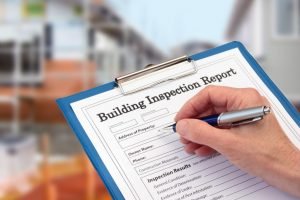Before you buy a home, one of the things you should do is to have it checked out by a professional home inspector. Yes, we can hear your objection: “Buying a home is expensive enough as it is! Why would I choose to fork over hundreds more if I’m not required to?” In this article, we’ll delve into what a home inspection can reveal and whether it’s worth the investment.
What is a home inspection?

A home inspection is an objective visual examination of the physical structure and systems of a house, from the roof to the foundation. On average, a single-family home inspection usually takes 2-4 hours to complete, though this is heavily dependent on the of the size and condition of the home. After the inspection process, the inspector will send the client an inspection report (often within 24-48 hours) that covers their findings, complete with pictures, analysis and recommendations.
What does a home inspection include?

There are many different types of home inspection processes that you may want to conduct before the purchase of a home. First and most importantly, you would need a general or residential inspection performed on the home. The professional home inspector would inspect the structure, exterior, roof, electrical, plumbing, HVAC, interior, insulation and ventilation. Once the inspection is completed, the home inspector will generally provide the buyer with a report suggesting any improvements or repairs deemed necessary to bring the home up to current standards. Home inspections may often reveal problems with a home that could be pricey to fix. This could be used as a great tool in purchasing negotiations with the seller. As the buyer you may be able to negotiate the price dependent on what the inspector has found. If flaws were found within the home, the buyer now would have a couple more options in negotiations. A buyer could negotiate a credit with the sellers, have the seller pay for repairs before the closing, purchase the home as is, or walk away from the purchase if the issues seem too problematic.
Other Inspections To Consider

Another inspection process a buyer may want to have before the purchase of a home would be a termite/wood destroying organism inspection. This professional inspector would check for signs of structural damage caused by wood boring insects. These insects may cause problems down the road. A general home inspector may perform this inspection for an additional cost, or recommend a WDO/WDI inspector to the buyer.
A radon inspection is also important when purchasing a home. Radon is a radioactive gaseous element formed by breakdown of radium, that occurs naturally especially in areas over granite, and is considered hazardous to health. Radon gas from natural sources can accumulate in homes, especially in confined areas such as attics and basements. Radon levels fluctuate naturally, therefore testing for high levels is important. If a radon test comes back high, some ways to alleviate the radon could be: sealing concrete slab floors, basement foundations, and water drainage systems. This could be a costly fix, suggesting the importance of radon inspections. Some general home inspectors will also do radon testing at an additional cost. It is important you ask your inspector if he performs these inspections, or for recommendations.
Do the homebuyers have to be there?
It is not required for the homebuyer to be present for the inspection. However, ASHI recommends attending so the homebuyer can receive the most value from their inspection. This allows homebuyers to observe the inspector and ask questions throughout the process. Many homebuyers find that talking with their inspectors gives them a better understanding the condition of the home and how to maintain it.
Can a house fail a home inspection?

A professional home inspection is an examination and objective assessment of the current condition of a house. A home inspector will not pass or fail a house, but rather describe its physical condition and indicate what components and systems may need major repair or replacement. A home inspection is not an appraisal and will not determine the home’s market value. It is also not a municipal inspection and does not verify local code compliance.
Conclusions
A home inspection will definitely give the buyer peace of mind and put the buyer’s mind at ease that the home is in good shape. It can also become a negotiation tool in closing, and could inform the buyer of potential future maintenance and upkeep. A seller of a home may also request a home inspection before the home is put on the market. This may assist the seller in setting a price, correct any issues with the home before it is put on the market, or merely having a pre-inspection report available for buyers informing them that the seller has nothing to hide.

